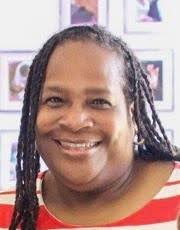|
Multicultural Dynamics in Counseling As a woman of color who provides counseling to people from all walks of life, several multicultural factors are always present in those counseling relationships— my race, my gender, my age, and recently, my ability. When I enter a therapeutic relationship, if I ignore the multicultural differences and dynamics present in it, I can do a disservice to my client and myself in the therapeutic relationship. The engagement with the client may be direct in addressing these areas of diversity or handled a little more indirectly. These are day-to-day life considerations, not just as a counselor but as an individual. Dealing with Diversity In Society The demographics of the U.S. have been changing for some time. Hays and McLeod (as cited in Hays & Erford, 2018) note that the typical U.S. citizen has changed tremendously since the 1970s. (see https://www.visualcapitalist.com/visualizing-u-s-population-by-race/). An increase in diversity has resulted from such factors as aging trends, higher birth rates for some racial and ethnic minority groups, and immigration trends that have led to an increase in non-English-speaking individuals (U.S. Census Bureau, 2015a). As counselors serve this diverse population, they must consider what is necessary for them in this changing world. In the field of counseling, the results of the changing face of the U.S. requires counselors to grow not only in multicultural competency but also in multicultural sensitivity and humility. In recent years, there have been some negative results played out in the news that have resulted in significant harm to people of color.
What’s The Counselor to Do? Given the changing demographics of the U.S., counselors must consider how to step into multicultural relationships in sensitive and helpful ways. Mental health issues will always be present in our society, from emotional, psychological, and social well-being. The CDC notes that these factors affect how people think, feel, and act. (https://www.cdc.gov/mentalhealth/learn/index.htm#:~:text=Mental%20health%20includes%20our%20emotional,others%2C%20and%20make%20healthy%20choices.&text=Mental%20health%20is%20important%20at,childhood%20and%20adolescence%20through%20adulthood) So, how can counselors begin to embrace the multicultural diversity of our clients and be providers who help deal with the multicultural stressors that clients of color face? Here are a few things to consider:
References Ghosh, I. (2020, Dec). Visualizing the U.S. population by race. https://www.visualcapitalist.com/visualizing-u-s-population-by-race/ Hays, D. G. & Erford, B.T. (2018). Developing multicultural counseling competence: A systems approach (3rd ed). Pearson Education, Inc. Noe-Bustamante, L., Gonzalez-Barrera, A., Edwards, K., Mora, L., & Lopez, M.H. (2021, Nov). Half of U.S. Latinos experienced some form of discrimination during the first year of the pandemic. Pew Research Center. https://www.pewresearch.org/hispanic/2021/11/04/half-of-u-s-latinos-experienced-some-form-of-discrimination-during-the-first-year-of-the-pandemic/ Spinner, T. (2020). Racially driven violence against Black Americans is a public health issue. https://www.naccho.org/blog/articles/racially-driven-violence-against-black-americans-is-a-public-health-issue
0 Comments
Leave a Reply. |
AuthorWrite something about yourself. No need to be fancy, just an overview. Archives
June 2024
Categories |





 RSS Feed
RSS Feed
